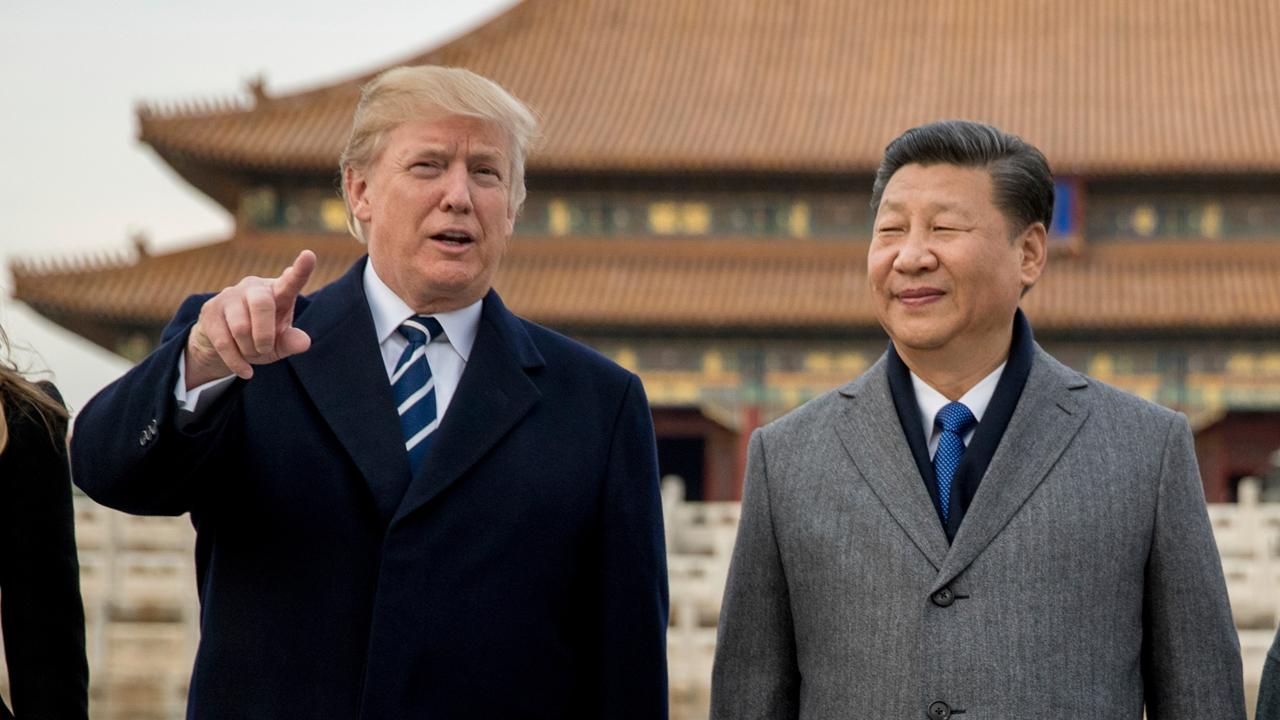China looks to retaliate against US. Here’s how it could
A recent breakdown in trade talks between the U.S. and China is spurring fear that the ongoing skirmish could drag well into the second half of 2019.
The markets have fluctuated wildly since President Trump and his top officials alleged earlier this month that China backtracked on already-agreed-upon commitments. The Dow Jones Industrial Average, for example, closed down 617 points on Monday but was on an upswing on Tuesday.
Now, trade negotiations between the U.S. and China appear at a standstill ahead of a potential meeting between Trump and President Xi Jinping in June. And after the White House’s recent decision to hike existing tariffs on $200 billion in Chinese imports and potentially extend duties to another $300 billion, China is eyeing retaliation.
The Asian nation has already said it will look to raise tariffs on nearly $60 billion in American products as high as 25 percent on June 1. But given the country’s reliance on exports for economic growth, it is unable to exert as much pressure through duties as the White House is.
There are several other steps China could pursue. And while they would vary in terms of actual impact on the U.S. economy, none are considered knockout options.
Among them is selling U.S. Treasurys, a measure suggested by the top editor of a Chinese publication regarded as a mouthpiece for the communist government but one that experts largely agree is unlikely.
China is the largest foreign holder of U.S. bonds with $1.13 trillion at the end of February 2019, a year-over-year decrease. That is partially spurred by the trade surplus between the two nations and the need for China to invest the extra cash, and only represents a small percent of the outstanding Treasurys.
Selling U.S. bonds and investing instead in the European Union or Japan, for example, could actually benefit the Trump administration because it would “push down the value of the U.S. dollar and actually help the U.S. out a little bit on trade balances,” according to Roger Tutterow, an economics professor at Kennesaw State University.
"If China were to stop purchasing ...or dump Treasurys back on the market and Treasury yields went up, then investors from other countries would be more likely to flow in," he told FOX Business. “The U.S. Treasury even at current levels provides a pretty good risk-return trade-off.”
The Federal Reserve could also begin purchasing available bonds, though such a move could be viewed as controversial among lawmakers and economists.
| Ticker | Security | Last | Change | Change % |
|---|---|---|---|---|
| I:DJI | DOW JONES AVERAGES | 50135.87 | +20.20 | +0.04% |
| SP500 | S&P 500 | 6964.82 | +32.52 | +0.47% |
| I:COMP | NASDAQ COMPOSITE INDEX | 23238.66991 | +207.46 | +0.90% |
Similar to last November, China could halt the purchase of soybeans or other agricultural products from the U.S., a retaliatory tactic that could lead to even more turmoil in the markets. Earlier this week, soybean futures fell to their lowest level in a decade. Trump has vowed to provide additional relief for farmers.
It could also make it more difficult for U.S. businesses to operate in the country by requiring additional inspections on goods shipped to China or slow-rolling certain applications. Last year, for example, Lincoln vehicles from Ford Motor Co. were reportedly held at Chinese ports for extra checks on emissions equipment.
Should the trade tensions continue through 2019, the Asian country also has more levers it can pull to prop up the national economy.
Unlike Trump, who can tweet at the Federal Reserve but has no direct influence on its decision making, the Chinese government can make unilateral changes to ease lending at state banks and tighten credit at shadow banks without impacting the renminbi (RMB), the country’s official currency, says Gary Hufbauer of the Peterson Institute for International Economics.
“They can control capital outflows,” he said in a recent interview. "They can ramp up the controls. Then they can use more easy credit without plunging the RMB."
Since talks broke down with the White House, for example, China has already reduced reserve requirements on smaller banks.
Trump referred to such measures on Twitter on Tuesday, posting that “China will be pumping money into their system and probably reducing interest rates, as always, in order to make up for the business they are, and will be, losing.”
And while China would not have many tools at its disposal to directly impact the U.S. economy, continued uncertainty over the future of the trading relationship between the two nations would likely further roil the markets and spur increased panic among corporate America.
The existing tariffs have largely had a muted effect on consumer pricing, experts say, but added duties, particularly expanding them to another $300 billion in Chinese imports, would have a much more outsized impact on the U.S. economy.
“That by itself will definitely have a depressing effect on the Chinese economy, but they are pretty nimble with their macroeconomic tools,” said David Dollar, senior fellow in Brookings Institution's John L. Thornton China Center.




















